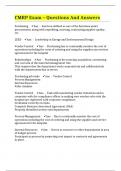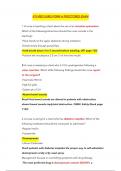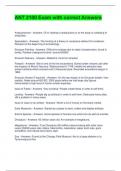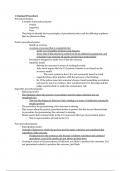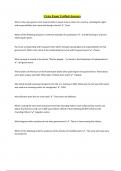Samenvatting
Summary BIO-ETHICS exam questions
- Vak
- Bio-ethics
- Instelling
- Universiteit Antwerpen (UA)
In this document, answers to all possible exam questions about the introductory sessions (lessons 1-4) of the bio-ethics class are logically bundled. You can find a complete overview of the questions on the first pages of the document. Result: 16/20 (with good paper).
[Meer zien]




